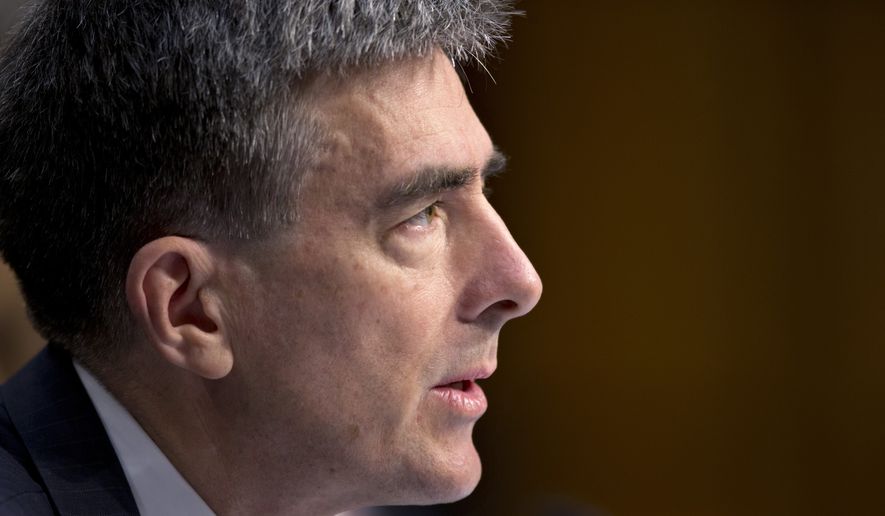John C. Inglis left his post as the first national cyber director this week while the Biden administration plans a new cyber strategy.
Mr. Inglis formally exited before the administration details its long-anticipated national cybersecurity strategy that his team has played a lead role in developing.
“Mr. President, thank you for placing your trust in me and for placing such a high priority on providing a safe, equitable and resilient cyberspace for all,” Mr. Inglis wrote Wednesday on Twitter.
Kemba Walden, Mr. Inglis’ deputy, has taken over the cyber czar position in an acting capacity and began her tenure in Munich. She participated in security conferences and visited BMW’s headquarters Thursday for a discussion of cybersecurity for electric vehicles, she said on Twitter.
Ms. Walden, who was in Munich for the Cyber Security Conference, said the Biden administration will shift responsibility for risks in cyberspace from users to producers, according to The Record. a cybersecurity publication.
The government’s new cyber strategy will involve many people competing for jurisdiction over federal cyber policymaking. The national cyber director is appointed by the president and confirmed by the Senate, and Mr. Inglis was sworn into office in July 2021.
Alongside the national cyber director, President Biden also picked Anne Neuberger to be the deputy national security adviser for cyber and emerging technology, and he appointed Jen Easterly to lead the Cybersecurity and Infrastructure Security Agency.
Ms. Neuberger has taken aim at hackers and cyber attackers, while Ms. Easterly’s team has looked to cement CISA as the main domestic cyber agency.
Other officials from a slew of federal agencies, including in the national security and law enforcement community, have a role in developing cyber policy. For example, Mr. Biden named Nathaniel C. Fick to serve as the country’s first U.S. ambassador at large for cyberspace and digital policy. Mr. Fick plays a lead role in crafting the nation’s cyber foreign policy.
More than 20 agencies are involved in creating the new national cybersecurity strategy, according to reports.
• Ryan Lovelace can be reached at rlovelace@washingtontimes.com.




Please read our comment policy before commenting.